

Understanding the Distinction: Travel, Trip, and Journey Explained
Zackary Hooper

Ever find yourself scratching your head over when to use ‘travel’, ‘trip’, or ‘journey’? Me too. In fact, these terms are commonly misused by even the most well-traveled folks among us.
Table of Contents
As an English language aficionado and travel enthusiast, I dove deep into linguistic resources to clear up this confusion once and for all. This blog will guide you through the nuances of these three words , helping you navigate your way to flawless English usage in any travel context .
Ready for departure?
Key Takeaways
- Travel refers to going to a place, especially far away.
- Trip involves traveling from one place to another, usually for a short period of time.
- Journey implies traveling from one place to another without necessarily returning.
- Proper usage of these terms is essential in effectively conveying our experiences.
Definition and Differences between Travel, Trip, and Journey
Travel is a verb that means going to a place, especially far away, while trip refers to the process of traveling from one place to another, usually for a short time. Journey, on the other hand, implies traveling from one place to another without necessarily returning.
Travel as a verb meaning to go to a place, especially far away
Travel, as a verb, emphasizes the act of moving from one location to another. This movement often involves significant distance between the two points. For instance, you might say you are traveling to Europe or Asia from America – places that are undoubtedly quite far from each other.
Notably, travel doesn’t always require a return trip; it merely notes the action of going somewhere far . Even voyages into space can be considered travel! So next time you utter “I love to travel,” note that this phrase speaks volumes about your passion for exploring distant destinations and embracing new experiences on a broader geographic scale .
Trip as the process of traveling from one place to another, usually for a short time
When we talk about a trip, we’re referring to the act of traveling from one place to another. It’s usually for a short period of time and involves moving between different locations .
Think of it as going on a vacation or taking a quick getaway. A trip can be as short as a day or extend over several days, but it generally doesn’t involve staying in one place for an extended period.
So whether you’re heading out on a road trip with friends or catching a flight to explore new cities, remember that a trip is all about the process of getting from point A to point B , enjoying the journey along the way.
Journey as traveling from one place to another, not necessarily returning
A journey is all about the experience of traveling from one place to another, without the expectation of returning . It can be a long and exciting adventure, with multiple destinations along the way.
Unlike a trip or travel, which often involves going somewhere and then coming back, a journey implies forward movement and exploration . It’s like embarking on a voyage of discovery, where you’re eager to see what lies ahead and open to new experiences.
Whether it’s backpacking through Europe or sailing around the world, a journey offers endless possibilities for exploration and self-discovery .
Common Uses and Examples of Travel, Trip, and Journey
– Travel: “I love traveling to different countries , experiencing new cultures and exploring exotic destinations.
– Trip: “We took a weekend trip to the beach, enjoying sun-kissed days and relaxing by the seaside.”
– Journey: “His journey across the desert was filled with challenges and self-discovery as he embarked on a soul-searching adventure.”
Travel: “I love to travel to different countries.”
I absolutely adore exploring different countries . Experiencing new cultures, trying unique cuisines , and immersing myself in unfamiliar landscapes is what makes travel so thrilling for me.
Whether it’s wandering through ancient ruins in Greece or hiking through the vibrant jungles of Costa Rica, I find immense joy in venturing beyond my comfort zone and discovering all that the world has to offer.
Travel opens my eyes to different perspectives and allows me to create lasting memories that I cherish forever.
Trip: “We went on a business trip to New York.”
Last week, I had the opportunity to go on a business trip to New York . It was an exciting experience that allowed me to explore the bustling city and meet with important clients . During the trip, we visited various companies , attended conferences , and even had some time to enjoy the sights and sounds of New York.
Being able to immerse myself in a different environment for a short period of time was both refreshing and educational. Overall, it was a successful trip that helped us strengthen our professional relationships and achieve our business goals.
Journey: “His journey around the world took him three years.”
I embarked on a three-year journey around the world, exploring new cultures and experiencing incredible adventures along the way. From bustling cities to remote villages, my journey allowed me to immerse myself in different landscapes and meet fascinating people from all walks of life.
It was a transformative experience that broadened my horizons and shaped my perspective on the world.
Clarifying Misuses of Travel, Trip, and Journey
Many people mistakenly use the term “travel” for short distances, but it should be reserved for going to faraway places. To understand the proper usage of these words, read on!
Incorrect uses of travel: “He traveled to the grocery store.”
Using the word “travel” to describe a short trip to the grocery store is incorrect. Travel usually refers to going to a distant place, especially far away. So, it’s important to use this term appropriately and not for everyday local trips like grocery stores.
Proper uses of the terms: “I traveled to Europe.”
I traveled to Europe for my summer vacation. It was an exciting travel experience filled with new cultures, delicious food, and breathtaking sights. The proper use of the term “travel” in this context refers to going somewhere far away , especially to a different country or continent .
In this case, I embarked on an adventure from my home country to Europe, immersing myself in each destination’s rich history and vibrant atmosphere. Traveling to Europe broadened my horizons and created memories that will last a lifetime.

Understanding the Nuances between Travel, Trip, and Journey
Travel, trip, and journey may seem similar, but they each have their own nuances. Read on to delve deeper into the distinctions between these terms and how to use them correctly in your everyday conversations.
Travel focuses on the action of going to a distant place.
Travel allows us to embark on exciting journeys to faraway destinations. It is the act of physically moving from one place to another , often to distant locations . Whether it’s exploring a new country , immersing ourselves in different cultures , or experiencing thrilling adventures , travel is all about the exhilarating action of venturing beyond our comfort zones .
So pack your bags and get ready for an incredible journey filled with unforgettable experiences!
Trip emphasizes the process of traveling and staying in a place.
A trip is all about the journey itself and the experience of being in a specific place . It focuses on the process of traveling from one location to another, while also emphasizing the time spent staying in that particular place.
Whether you’re taking a short weekend trip to a nearby city or embarking on a week-long vacation, a trip is about immersing yourself in new surroundings and enjoying everything that destination has to offer.
Journey implies a longer and more significant travel experience.
When embarking on a journey, you can expect a more extensive and meaningful travel experience . Unlike a simple trip or travel, a journey often involves exploring multiple destinations or pursuing a specific purpose .
It encompasses the idea of venturing into the unknown and embracing new challenges along the way. Whether it’s an epic road trip across several countries or a spiritual pilgrimage to sacred sites, a journey offers an opportunity for personal growth and transformation .
It allows you to immerse yourself in different cultures , navigate unfamiliar terrain, and create lasting memories. So if you’re seeking an adventure that goes beyond mere transportation from point A to point B, set out on a journey that will take you further and leave an indelible mark on your soul.
Conclusion and Importance of Using the Correct Terms
Understanding the distinctions between travel , trip, and journey is crucial in accurately conveying our experiences . By using these terms correctly, we can communicate more effectively and avoid confusion .
So whether we’re embarking on a short trip or a life-changing journey , let’s remember to use the right words to describe our adventures ! Keep exploring and keep traveling!
1. What is the difference between travel, trip, and journey?
Travel refers to the act of going from one place to another, while a trip is a specific instance of traveling for a particular purpose or destination. A journey, on the other hand, implies a longer and more meaningful experience that may involve personal growth or transformation.
2. Can you give examples of each term – travel, trip, and journey?
Sure! Travel can include activities like flying to a different country or taking a road trip across states. A trip could be going on vacation to Disneyland or visiting family over the holidays. And a journey might involve backpacking through Europe for several months or embarking on a spiritual retreat.
3. Is there any overlap between these terms?
Yes, there can be some overlap between these terms depending on context. For example, someone’s “trip” may also be considered their “journey” if it involves self-discovery or exploration. Similarly, long-term travel experiences may encompass both the notions of “travel” and “journey.”
4. How does understanding the distinction between these terms help in communication?
Understanding the distinction between travel, trip, and journey helps in effective communication as it allows us to accurately describe our experiences and intentions when discussing our travels with others. It provides clarity and avoids confusion by using appropriate terminology when sharing stories or making plans involving different types of travel experiences.
About the author

I’ve been fortunate to visit over fifty countries, each journey leaving a unique footprint on my life’s map. From bustling cities to serene nature trails, I’ve immersed myself in different cultures and experiences, constantly broadening my understanding of the world. On this site, I share my travel stories, tips, and insights, hoping to inspire others to embark on their own journeys. Join me as we uncover the beauty of our planet, one adventure at a time. Please reach out here if you need to get in touch.
Leave a Reply Cancel reply
Your email address will not be published. Required fields are marked *
Save my name, email, and website in this browser for the next time I comment.
Latest posts

The Importance of Responsible and Sustainable Travel for a Thriving World
Are you a travel enthusiast who craves for new experiences yet worries about the impact your adventures could have on our planet? You’re not alone. This blog post, rooted in research and experience, explores responsible and sustainable travel as a solution to this dilemma. It’s packed with insights on how to experience the world without…

Important Things to Keep in Mind While Traveling
Ever tried to navigate the complex world of planning a perfect trip and felt overwhelmed? I’ve been there too, overwhelmed by travel checklists, nervous about safety guidelines, and trying to balance out my luggage. Studies show that proper preparation can reduce travel stress significantly which led me to curate this guide to help you. This…

Transforming Travel for a Thriving World: The Importance of Good Travels
Are you keen on traveling but want to ensure your travels align with your values? I’ve been there, too. In fact, research shows that more and more people are interested in ethical tourism (Queiros, 2015). This article will introduce you to the concept of good travel and how it can contribute to a thriving world.…
Travel vs. Trip vs. Journey

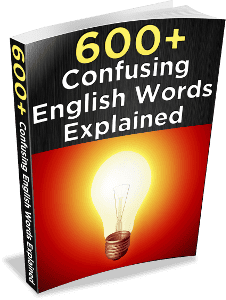
The act of going to another place (often for a short period of time) and returning.
- We took a five-day trip to the Amazon.
- You’re back from vacation! How was your trip ?
- I went on business trips to Switzerland and Germany last month.
Use the verbs “take” and “go on” with trip .
- A round-trip ticket is a ticket for going and coming back.
- A one-way ticket is only for going.
Travel (v.)
Going to another place (in general).
- I really like to travel.
- He travels frequently for work.
- My sister is currently traveling through South America.
Travel (n.) can be used to describe the act of traveling in general:
- Travel in that region of the country is dangerous.
- World travel gives you a new perspective.
Incorrect uses of travel :
- I bought this shirt on my travel to Thailand. I bought this shirt on my trip to Thailand.
- I’m planning a travel to the U.S. next year. I’m planning to travel to the U.S. next year. I’m planning a trip to the U.S. next year.
Journey (n.)
One piece of travel (going from one place to another) – usually a long distance.
- The journey takes 3 hours by plane or 28 hours by bus.
- He made the 200-mile journey by bike.
- “A journey of a thousand miles must begin with a single step” – Lao-tze, Tao Te Ching
We can also use journey in a more “metaphorical” way to talk about progress in life:
- He has overcome a lot of problems on his spiritual journey.
- My uncle is an alcoholic, but he’s beginning the journey of recovery.
Quiz: Travel, Trip, or Journey
- Then and Than
- Affect and Effect
Clear up your doubts about confusing words… and use English more confidently!

More Espresso English Lessons:
About the author.
Shayna Oliveira
Shayna Oliveira is the founder of Espresso English, where you can improve your English fast - even if you don’t have much time to study. Millions of students are learning English from her clear, friendly, and practical lessons! Shayna is a CELTA-certified teacher with 10+ years of experience helping English learners become more fluent in her English courses.

Learn English Today
Free materials and resources for learners of English.
- Grammar list
- Exercise list
- Vocabulary Contents
- Idioms: by theme
- Idioms: alphabetical lists
- Today's idiom
- Ph Verb Lists + Exercises
- Business letters
- Presentations
- Interview questions
- All business content
- Stress-noun-verb
- Silent letters
- Online word games
- Printable word games
- Resources for learners
- Resources for teachers
- New words in English
- Environment
- Fun activities
- Sitemap: list of contents

See TODAY'S IDIOM
English Grammar
TRAVEL - TRIP - JOURNEY - TOUR - VOYAGE
Meaning and use of the words 'trip', 'travel', 'journey', 'tour', and 'voyage'..
The explanation below should help clarify the meaning and use of vocabulary related to travel.
Try an exercise
back to grammar
Copyright www.learn-english-today.com - All Rights Reserved.
The materials on this website may be copied for use in the classroom or for private study. Any other use without permission is forbidden.
Privacy Policy Cookie Policy

VOCABULARY: Travel, Journey or Trip? What's the difference?
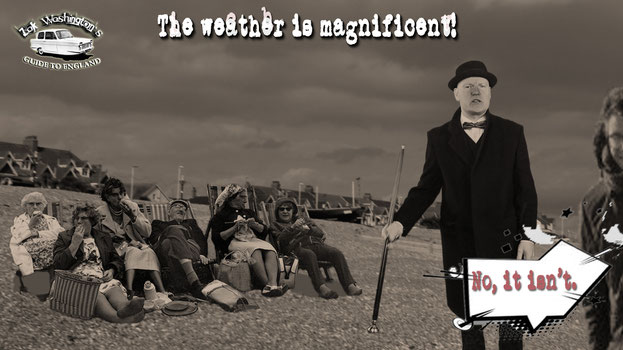
To travel is, of course, a verb but not normally a noun unless it is in a literary context e.g. Gulliver’s Travels (a book by Jonathan Swift), or a long, extensive tour.
In everyday English, we would refer to travelling by saying a journey , or a trip , the difference being that a trip talks of the whole process of going, doing what you do, and then returning.
A journey is used more to refer to the journey itself, although often there is little difference. Compare the following: ‘The journey was rotten. The fat man who sat next to me snored all the time.’ ‘The trip was great, we managed to do everything that we had intended.’
To journey is an archaic verb not used now. To trip exists but it has a completely different meaning; ‘to fall over an object’; ‘He tripped over the step and spilt all the drinks.’
To voyage only refers to a long journey made at sea.

Write a comment
- Scroll to top


When do I use ‘travel’, ‘trip’ and ‘journey’?
The coffee break english show - season 1, episode 3, share this post.
Do you know the difference between the words travel , trip and journey ? They all have similar meanings, so it’s easy to confuse them!
The Coffee Break English Show is a podcast series of bite-sized, friendly conversations to help you understand some difficult topics in English. In the latest episode, Mark and Josie talk about when to use travel , trip and journey correctly.
Continue reading to find out more and why not listen to the podcast as you go?
So, let’s get started and look at the words travel , trip and journey .
Travel is a verb. It describes the action of going to a place.
Here are some examples using travel :
They travelled to London by train.
I’m going to travel to Australia this summer.
Top tip: we can often replace travel with go .
Travel is usually a verb, but not always. The word travels describes the action of visiting different places, and we can replace it with adventures . We use travels in the expressions go on your travels and be off on your travels . For example:
Now that my daughter has finished high school, she’s off on her travels.
When are you going on your travels in Europe?
Journey is a noun. It describes the action of travelling from one place to another place. For example:
Mark’s journey to work takes 20 minutes.
I am exhausted after my long bus journey.
Have a safe journey home!
Like journey , trip is also a noun. It describes the process of travelling to a place, doing things in that place, and travelling back home again. We use trip in the expressions take a trip and go on a trip . For example:
She’s going on a business trip to Thailand.
We’re taking a trip to Greece this summer.
Let’s practise!
Now, let’s practise! Here are five sentences. Complete the spaces with travel , trip , or journey . The answers are at the end of this blog post, but don’t look until you’ve thought about the answers!
- I ___ to work by train.
- It was a really long car ___.
- I’d love to go on a ___ around the world.
- How long will the ___ to Rome take?
- My brother is on a work ___ this week.
Happy Coffee Breaking!
If you found this post interesting, make sure you listen to the full podcast episode with Mark and Josie on The Coffee Break English Show . We will release more episodes soon, about some more useful topics! Subscribe to our podcast feed and our channel on YouTube to learn when the next episode is available.
Plus! To get regular free English lessons in your inbox, you can sign up for our email lessons. We regularly send short (coffee-break-sized) email lessons that will help you improve your English. You will also hear from Mark, the founder of Coffee Break Languages, giving advice for language learners at any level. Sign up below!
So, keep practising when to use travel , trip , and journey ! Remember that all English learners make mistakes, but people can usually still understand you. It’s all part of the language-learning journey.
PS. Here are the answers to the questions:
- I travel to work by train.
- It was a really long car journey .
- I’d love to go on a trip around the world.
- How long will the journey to Rome take?
- My brother is on a work trip this week.
Listen to the podcast
Get the worksheet, more to explore.

What’s the difference between ‘how much’ and ‘how many’?

How to pronounce ‘Tuesday’ and ‘Thursday’

Coffee Break Languages is a product of Radio Lingua Ltd.
Get Started
- Members' Login
- Coffee Break English
- Coffee Break French
- Coffee Break German
- Coffee Break Italian
- Coffee Break Mandarin Chinese
- Coffee Break Spanish
- Coffee Break Swedish
- Coffee Break Academy
- Coffee Break TV
- RLN Education (Schools)
- Coffee Break Partnerships
- Terms of Use
- Privacy Policy
- Refund Policy
- Cookie Policy
© Radio Lingua Ltd 2008-2023 All rights reserved

What is the difference between travel, trip and journey?
- February 15, 2024
Are you travelling anytime soon? If so, where are you going on your trip ? I hope the journey goes well and that you have a great time.
Did you note how I used the words? I used “travel” as a verb and the other two words as nouns. That is the first major difference and how we use them most often.
Now, let’s explore each word, beginning with “travel.”
“Travel” is a verb that means “to go to a place and especially one that is far away.” Far can mean long distances within the same country or to other countries.
For instance: I have a friend who travels abroad a lot for work.
“Travel” can also be a noun that relates the act of going from one to another:
Travelling alone with 2 small children is not easy.
Here the verb is a gerund and therefore it can be used as a noun.
A common mistake with “travel” is confusing it with “trip,” like this: I bought this souvenir on my travel to Japan. Here we need to use trip instead.
Now let’s look at trip:
The word “trip” is a noun that means “the act of going to another place and returning.”
For example: I bought this souvenir on my trip to Japan.
We also often use the verbs “go on” or “take” with “trip,” like this: I took a long trip to the South of France last year.
We also say things like “day trip,” “business trip,” and “road trip” to describe different kinds of trips.
We do not use the word as a verb for travel. When ‘trip’ is a verb it is used to mean that you stumble across an obstacle.
Now let’s look at journey:
The word “journey” is a noun that means “the act of going from one place to another.”
For example:
I hate long car journeys.
Have a safe journey!
It’s a 2 hour train journey from York to London .
Note the difference between trip and journey:
The journey to London took 3 hours by train.
Our trip to London was fantastic.
So the first is talking about going from A to B: the travelling time. If using a verb without saying how long we could say we travelled to London by train.
The second is talking about the whole holiday, period away.
Be sure to check out my YouTube live video where I explained the difference between these commonly confused 3 words:

- Grammar & vocab
Confusing words: travel, a journey, a trip, a voyage
- Click to share on Facebook (Opens in new window)
- Click to share on X (Opens in new window)
- Click to share on WhatsApp (Opens in new window)
- Click to share on Telegram (Opens in new window)
- Click to share on LinkedIn (Opens in new window)
- Click to email a link to a friend (Opens in new window)
The words travel , journey , trip and voyage can easily be confused by learners of English.
I suppose it’s a good time of year to look at these words, as the spring and summer holiday seasons will soon be starting for many people.
Travel (noun)
The noun travel is a general word, meaning to move from place to place, usually over long distances.
We can say: air travel , food and travel , space travel , business travel , a travel agency .
- Air travel is getting more expensive.
- The magazine is a food and travel guide.
We can also say travels , which is a plural noun:
- Where did you go on your travels?
- Jack Kerouac wrote many books about his travels.
Travel is also a verb:
- I travel 20 km to work every day.
Journey (noun)
A journey means moving from one place to another, especially in a vehicle. It is a single piece of travel. A journey can also be a regular thing.
Here is an example. Let’s say we go from London to Leeds then back again. That is two journeys (London to Leeds is the first journey, Leeds to London is the second journey).
We can say: a bus journey , a train journey , the journey to school , my journey to work .
Be careful with the plural: journeys NOT journies .
- How long does your journey to work take?
- Did you have a good journey?
- Did you have a good travel?
Trip (noun)
A trip describes the whole process of going somewhere and coming back. (It is more than one journey.)
Once again, let’s go from London to Leeds then back again. As I said above, that is two journeys, but it is one trip.
Some examples: a day trip , a round trip , a round-the-world trip, a boat trip and a business trip . We say go on a trip .
- We went on a three-week trip to Scotland.
- He’s gone on a business trip to Germany.
- Let’s go on a trip to the mountains this summer!
- The trip there took three hours. The journey there took three hours.
Voyage (noun)
Voyages are less common nowadays. A voyage is a very long trip, usually at sea or in space:
- At the age of twenty-three, Sir Francis Drake made his first voyage to the New World.
- A voyage around the world often took four or five years.
The French Bon voyage! translates into English as Have a good trip! or Have a good journey!
I hope that’s clear. Here’s a quick exercise for you to test your understanding:

34 Comments
sareh - April 16, 2012, 11:28 pm Reply
that was so helpful thank you
Amelia - February 20, 2013, 1:07 pm Reply
The explanation is very nice but I could not find the “quick exercise” you mention at the end. Thanks.

Stuart Cook - February 20, 2013, 7:05 pm Reply
Thanks, Amelia. Some users have told me that the exercises are not visible in certain browsers (older versions of Internet Explorer, for instance). They’ll definitely work if you use the Chrome browser.
MARIA DEL MAR - May 31, 2013, 8:53 pm Reply
hello,…. Your website is really usefull, now I can understand some differents thing … I hope it will be more successful than before.. and I wish improve my english too. 🙂
Allabergan - September 1, 2013, 11:01 pm Reply
I really liked this website. Thx . But what about <>???? Please, explain it also?! thx in advance
Allabergan - September 1, 2013, 11:02 pm Reply
I asked about ” tour”.
Stuart Cook - January 21, 2014, 7:44 am Reply
A tour is when we visit several different places on a long trip and is usually for pleasure. A tour can also be an official visit to inspect a place, e.g. They gave the Prime Minister a tour of the new factory.
Wen Dodge - August 14, 2021, 8:51 am Reply
How can I get more helpful info?
Blanca - January 20, 2014, 10:31 am Reply
Le agradecería me aclarara si es un error en la página o es que estaba yo confundida, porque aprendi que no se dice ‘Travel is much faster and cheaper nowadays…’ como se indica en la pagina como correcto, sino: ‘TRAVELLING is much fuster and cheaper …’ Por favor ¿puede confirmármelo? Muchas gracias por adelantado po su amable respuesta.
Blanca - January 20, 2014, 10:40 am Reply
Excuse me, I put the question in Spanish without realising where you could be located. I put it again in English,excuse me.
I learnt that the correct sentence would be: ‘TRAVELLING is much faster and cheaper..’ but in the site here the answer that appear as correct is ‘TRAVEL is much faster and cheaper..’
Could you please be so kind to confirm me if it is a mistake of the system or if I was wrong and in fact in this case is more correct to say travel than travelling?
Thank you very much in advance for your reply.
Stuart Cook - January 20, 2014, 11:03 am Reply
Blanca, It’s also possible to say Travelling is much faster and cheaper . The reason travelling was not given as an option in the multiple choice quiz is that we are looking at the differences between the nouns journey, trip and travel here. I see that this may be a bit confusing, so I have changed the last question in the exercise to air travel .
Luisa - January 21, 2014, 1:51 am Reply
Hi! I don´t find the question number 10 that you mentioned in your comment. Could you tell me if the exercise is incomplete? Thanks a lot.
Stuart Cook - January 21, 2014, 7:49 am Reply
Hi, Luisa The travel / journey / trip exercise has seven questions, not ten. You can see it at the end of the article above.
Rogerio - March 20, 2014, 5:35 pm Reply
Thank you for your help and congratulations for the iniciative of keeping this site in the web.
azam - May 7, 2014, 6:04 am Reply
Hi thank you very much. could you tell me how I can speak better please? When I speak English, I wanna get nervous and forget everything. my teacher told me ” don’t be shy” but he didn’t tell me how. please teach some exercises.
Alexandre Spindola - May 12, 2014, 5:41 am Reply
Dear Mr. Stuart Cook,
I’d like to thank you very very very very much for this explanation!!! I am Brazilian, and I have never had the opportunity to learn the difference among these confusing words. Now, thank you, I finally know that. I’m so happy and satisfied, thank you!!!
Best Regards,
Alexandre Spindola
Stuart Cook - May 12, 2014, 7:07 am Reply
Hi, Alexandre
I’m really glad you like the site and find it helpful. Good luck with your studies!
Pouya keikavous - May 26, 2014, 10:08 am Reply
Lots of thanks for explanation
regor ngavouka - September 9, 2014, 2:34 am Reply
Hi, i’m a congolese i’m so happy to have discovered the real and clear explanations of them. Thank you for having brought more light on the confusion that seemed to be as tough as a stone. But now thanks to you,
Aristia - September 25, 2014, 11:32 am Reply
Brilliant work! Thank you
Heine - February 23, 2015, 11:34 am Reply
thank you. this is very helpful.
Tiago_Dos_Santos - April 8, 2015, 11:41 am Reply
Extremely helpful! Thank you! 🙂
Venya Gangwani - October 11, 2016, 5:18 am Reply
This is a very good page but I need to ask that : A voyage is for pleasure or for business?
Aurélio Loiola - November 2, 2016, 10:56 pm Reply
This time I shall learn the differences between travel, journey, trip and voyage. On my future trip, I’ll take three flights because I’ll go to three different cities. In the middle, I got confused to say if I scheduled my journey to Recife or if I scheduled my travel to Recife on 28. I know I could only say I scheduled my flight from Fortaleza do Recife. But considering journey and travel which is right? Thanks a lot.
Fariba - February 10, 2017, 2:48 am Reply
Hi That was so useful & helpful. Thanks. Can we say: “go on a travel” ?
Pro Inglis - March 28, 2017, 9:34 pm Reply
Very Helpfull! Can you include Crossing and Fight??
Anonymous - May 25, 2017, 10:33 pm Reply
Thank you for your explanation, It really helped me understand the context in which I can use them.
Nassimah Reynolds - October 17, 2017, 7:28 pm Reply
Great work, Stuart Cook! I’m an English teacher myself and have to explain these words very often. But your explanation is very clear and concise, and illustrates the wonders of the English language : ) Thanks!
Nouran - December 2, 2017, 9:34 pm Reply
Thank you for this wonderful site . It helped me alot.
Dinuka - September 20, 2019, 3:40 am Reply
It very useful to me. Thanks
jennifer - July 1, 2020, 10:28 am Reply
wonderful and very useful information.
FreeAgent - January 22, 2021, 11:10 am Reply
I don’t know how to thank you enough, but this is the best insightful explanation ever on the Internet.
I really understood the subtle differences and proper usages of them.
You are evidently a great teacher.
Thank you so much! I really appreciate it.
Martine - May 16, 2021, 9:45 am Reply
Which noun do we use when we talk about travelling around the world? A … around the world? A world …?
Stuart Cook - May 16, 2021, 10:05 am Reply
We call it a round-the-world trip . A musician would do a world tour .
Leave a Reply Cancel Reply

Your email address will not be published.
You may use these HTML tags and attributes: <a href="" title=""> <abbr title=""> <acronym title=""> <b> <blockquote cite=""> <cite> <code> <del datetime=""> <em> <i> <q cite=""> <s> <strike> <strong>
Notify me of follow-up comments by email.
Notify me of new posts by email.
Related Posts
- Confusing words: job, work
- Confusing words: passed, past
- Confusing words: so, such
- Confusing words: close, shut
- Confusing words: fewer, less
- Confusing words: during, for, while
- Confusing words: convince, persuade
- Confusing words: speak, talk
- Confusing words: say, tell
- Confusing words: forget, leave

What is the difference between journey , trip , voyage and excursion ?
Quick word challenge
Quiz Review
Score: 0 / 5
Trip vs. Journey: What's the Difference?
Key Differences
Comparison chart, connotation, trip and journey definitions, can "trip" refer to an accidental stumble, what does "trip" mean, is "trip" used for short or long travels, can "trip" be a verb, how do you use "trip" in a sentence, can "trip" refer to a mistake or error, does "trip" have a plural form, is "trip" a formal or informal word, can "trip" mean a psychedelic experience, how do you use "journey" in a sentence, does "journey" imply a specific mode of travel, can "journey" be a verb, what is the plural of "journey", is "trip" ever used metaphorically, what does "journey" mean, how is "journey" different from "trip", can "journey" have a spiritual meaning, is "journey" ever used in a business context, is "journey" used for physical travel only, is "journey" formal or informal.
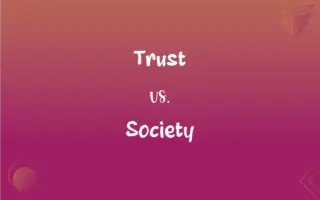
Trending Comparisons

Popular Comparisons

New Comparisons
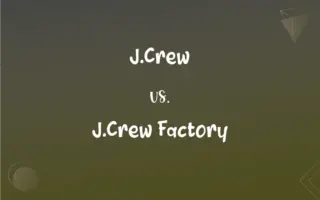

Vocabulary: Differences between travel, journey, trip, voyage and tour
Published 29/07/2015 In Blog
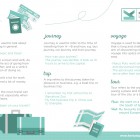
The Summer holidays are around the corner so it is definitely a good time to post an article on my blog explaining the difference between all these words.
Travel, journey, trip, voyage and tour can be easily confused by all those students learning English, so below are clear explanations of how to use the 5 terms:
*Verbs: Louise travels a lot for work *Nouns: Travel the way you wish to go
learn english online voyage journey travel trip tour online english course learn english on skype differences between voyage journey travel trip and tour English grammar

Blog categories
- Spanish Grammar
- English Grammar
- Grammar Activities

contact | any questions?
Contact details, message information.

The TR Company

Do you know the difference between TRAVEL, JOURNEY, and a TRIP?
26/6/19 Do you know the difference between TRAVEL, JOURNEY, and a TRIP?

Now you will! The words travel, journey, and trip can easily be confused by learners of English. I suppose it’s a good time of year to look at these words! Travel (noun) The noun travel is a general word, meaning to move from place to place, usually over long distances. We can say: air travel, food and travel, space travel, business travel, a travel agency.
- Air travel is getting more expensive.
- The magazine is a food and travel guide.
We can also say travels , which is a plural noun:
- Where did you go on your travels?
- Jack Kerouac wrote many books about his travels.
Travel is also a verb:
- I travel 20 km to work every day.
Journey (noun) A journey means moving from one place to another, especially in a vehicle. It is a single piece of travel. A journey can also be a regular thing. Here is an example. Let’s say we go from London to Leeds then back again. That is two journeys (London to Leeds is the first journey, Leeds to London is the second journey). We can say: a bus journey, a train journey, the journey to school, my journey to work. Be careful with the plural: journeys NOT .
- How long does your journey to work take?
- Did you have a good journey?
Trip (noun) A trip describes the whole process of going somewhere and coming back. (It is more than one journey.) Once again, let’s go from London to Leeds then back again. As I said above, that is two journeys, but it is one trip. Some examples: a day trip, a round trip, a round-the-world trip, a boat trip and a business trip. We say go on a trip.
- We went on a three-week trip to Scotland.
- He’s gone on a business trip to Germany.
- Let’s go on a trip to the mountains this summer!
- The journey there took three hours.

Related Posts

English <> Spanish IMF Glossary: 101 key terms

100 KEY TERMS USED IN INTERNATIONAL ARBITRATION

CONGRATULATE!
No comments, post a comment cancel reply.
You must be logged in to post a comment.
Travel vs Trip – Difference
What is the difference between Travel and Trip?
These two words frequently confuse learners of English.
A quick explanation that is valid for most situations is the following:
Travel – a verb (the action) Trip – a noun
Susan’s husband isn’t in town at the moment; he is on a business trip . He travels to many different countries. Susan met her husband on a trip to the Bahamas.
Travel – to go from one place to another Trip – a journey that is often for a short period of time.
NOTE: There are some exceptions to the general rule above.
Travel can also be a noun when it refers to the act of traveling.
- Travel is difficult in that part of the country since there are no paved roads.
- Travel broadens your mind.
Sometimes Travel appears in plural form and in that case is normally preceded by a possessive adjective (my travels, his travels etc.)
- She has had many adventures in her travels .
- I have never seen any as strange as that in all of my travels .
Trip can also be a verb though it has a completely different meaning. To Trip – to accidentally stumble and almost fall while walking or running, usually after catching your foot on something.
- He didn’t see the cat and he tripped up.
Trip vs. Journey
A trip usually refers to traveling to a place and returning back to where you started. A journey usually implies traveling from one place to another (not necessarily returning to where you started). It sometimes refers to the length of time taken to go from one place to another.
- They went on a journey through South America that lasted 6 months.
- It is a three-day journey by train.
Some more uses of the word Trip
A day trip usually refers to a tourist activity that occupies your entire day. A business trip is when you travel for business reasons. A round trip means to travel somewhere and return to place of original, there and back (= a return trip)
Summary Chart
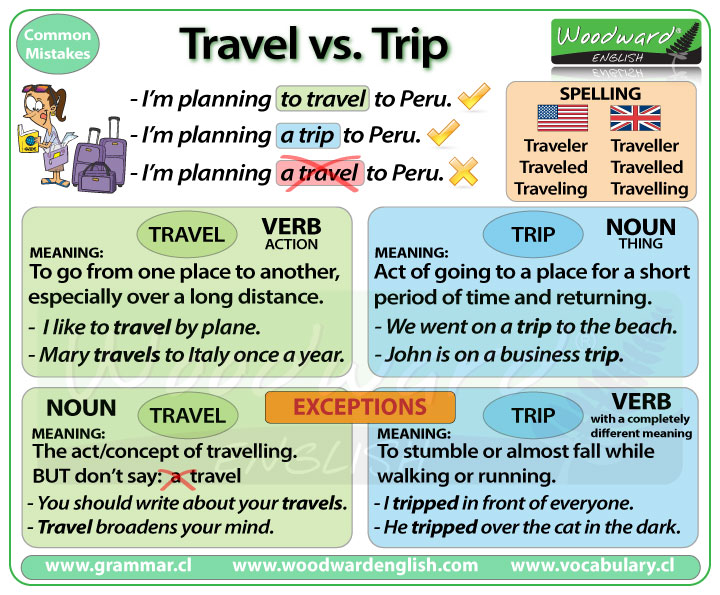
What is the best trip you have ever had?
- 934k Followers
- 214k Followers
- 104k Followers
FREE English Courses
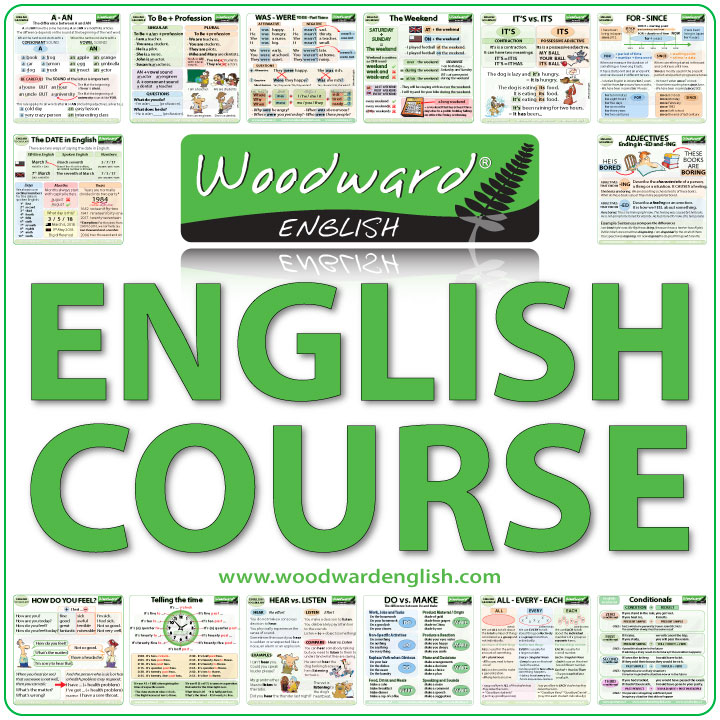
Pin It on Pinterest

IMAGES
VIDEO
COMMENTS
1. What is the difference between travel, trip, and journey? Travel refers to the act of going from one place to another, while a trip is a specific instance of traveling for a particular purpose or destination. A journey, on the other hand, implies a longer and more meaningful experience that may involve personal growth or transformation. 2.
Journey (n.) One piece of travel (going from one place to another) - usually a long distance. The journey takes 3 hours by plane or 28 hours by bus. He made the 200-mile journey by bike. "A journey of a thousand miles must begin with a single step" - Lao-tze, Tao Te Ching.
Meaning and use of the words 'trip', 'travel', 'journey', 'tour', and 'voyage'. The explanation below should help clarify the meaning and use of vocabulary related to travel. The word 'travel' is used to talk about going from one place to another. Verb : Paul travels a lot in his job. Noun : Travel nowadays is faster than before.
And, we say things like "day trip," "business trip," and "road trip" to describe different kinds of trips. We do not use the word as a verb for travel. Journey
As a noun, "tour" means a visit to a place or area, especially for the purpose of sightseeing and learning about it. It can also be a trip for pleasure, especially as a vacation, visiting several different places in an area. As a verb, "tour" means to travel somewhere, e.g., to spend a month touring (around/in) Kenya.
There are small differences between these words. For one, travel is more commonly used as a verb than a noun. You won't really hear someone say "I'm going on a travel", but you'll often hear people say "I'm going on a trip". As for trip and journey, trip usually refers to a small casual outing that can be anywhere from a few days to a few weeks.Journey, however, has a more epic and grandiose ...
We often say: a business trip; a weekend trip; a day trip, and a school trip. But you can also 'take a long (plane/road/boat) trip' to somewhere. journey, n. is usually a long trip of some kind; it can be any kind of trip, but the implication is that it may be arduous and discoveries might be made along the way. You can also talk about your ...
A journey is used more to refer to the journey itself, although often there is little difference. Compare the following: 'The journey was rotten. The fat man who sat next to me snored all the time.' 'The trip was great, we managed to do everything that we had intended.'. To journey is an archaic verb not used now.
Trip. Like journey, trip is also a noun. It describes the process of travelling to a place, doing things in that place, and travelling back home again. We use trip in the expressions take a trip and go on a trip. For example: She's going on a business trip to Thailand. We're taking a trip to Greece this summer.
Note the difference between trip and journey: The journey to London took 3 hours by train. Our trip to London was fantastic. So the first is talking about going from A to B: the travelling time. If using a verb without saying how long we could say we travelled to London by train. The second is talking about the whole holiday, period away.
Trip (noun) A trip describes the whole process of going somewhere and coming back. (It is more than one journey.) Once again, let's go from London to Leeds then back again. As I said above, that is two journeys, but it is one trip. Some examples: a day trip, a round trip, a round-the-world trip, a boat trip and a business trip .
An excursion is a short trip made either as a tourist or in order to do a particular thing. The tourist office organizes excursions to the palace. 5 verbs used with `journey', `trip', `voyage' and `excursion'
A trip often implies a brief, sometimes spontaneous excursion with a specific goal or destination in mind. In contrast, a journey suggests a longer or more significant process of travel, possibly encompassing various experiences and a considerable distance.
Learn the difference between commonly confused words in English: Travel, Trip, and Journey. Visit http://www.espressoenglish.net for English tips and intensi...
journey (noun) A journey is one single piece of travel. You make journeys when you travel from one place to another. (Note that the plural is spelt journ eys, not journies): The journey from ...
Vocabulary: Differences between travel, journey, trip, voyage and tour . Published 29/07/2015 In Blog. Download image The Summer holidays are around the corner so it is definitely a good time to post an article on my blog explaining the difference between all these words.
Journey vs Trip. Improve your English vocabulary and grammar: learn the difference between the confusing English words 'journey' and 'trip' with One-minute English. Sian and Clare explain when we ...
Trip (noun) A trip describes the whole process of going somewhere and coming back. (It is more than one journey.) Once again, let's go from London to Leeds then back again. As I said above, that is two journeys, but it is one trip. Some examples: a day trip, a round trip, a round-the-world trip, a boat trip and a business trip.
Generally speaking, a trip is a journey or excursion, usually for a specific purpose or destination. It can be a short or long distance, and it can be a one-time event or a regular occurrence. ... a month, or even just a day. The key difference between travel and a trip is that travel is more open-ended and exploratory, while a trip is ...
The journey there took three hours. (correct) (A) The trip took three hours (wrong) All dictionaries defined a trip as a short distance travel while journey it takes a lot time to achieve, i.e. to travel for a distant area by a vehicle. This already is understood and no question to ask more but I had this example:
The word "journey" conveys travelling a longer distance, over a longer span of time, perhaps with challenges or difficulties along the way.If I was walking across a continent, or circumnavigating the globe in a small boat, I might talk of taking a "journey".. The word "trip" can also be used to describe travelling long distances (I can take a trip from New York to Tokyo), but generally doesn't ...
Travel - to go from one place to another. Trip - a journey that is often for a short period of time. NOTE: There are some exceptions to the general rule above. Travel can also be a noun when it refers to the act of traveling. Travel is difficult in that part of the country since there are no paved roads. Travel broadens your mind.
Many of my students confuse TRIP and TRAVEL. This video aims to help you get a better grasp on your English vocabulary and understand the meaning as well as ...